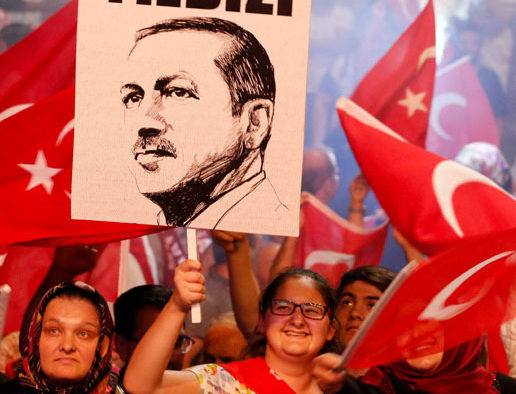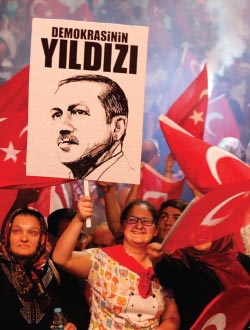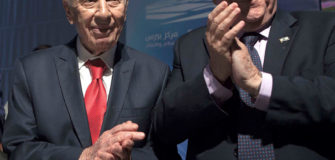Turkish Foreign Policy Post-Failed Coup

 How relations with Washington and Brussels soured, and those with Moscow were resuscitated
How relations with Washington and Brussels soured, and those with Moscow were resuscitated
On July 16th, the Turkish people woke up to a different country – one traumatized by the failed coup attempt the day before. It had only been weeks since commentators had begun to speak of a ‘normalization’ or ‘reset’ of Turkish foreign policy, following the resumption of bilateral ties with Israel (for the first time since the Mavi Marmara incident in May 2010) and Russia (President Erdogan had just sent a letter to President Putin, expressing regrets for the downing of the Russian jet in November 2015). Erdogan spoke of these changes in terms of a ‘win-win’ approach to Turkey’s relations with the world. Prime Minister Yildirim hinted at policy shifts vis-à-vis Iraq, Syria and Egypt. And Foreign Minister Cavusoglu intimated a possible reconciliation with Armenia following his visit to Azerbaijan in July of this year.
Just as Turkey was working to mend fences in its turbulent neighbourhood, putschist elements in the Turkish military attempted a violent coup against a democratically elected government. The Minister of the Interior reported that 238 people were killed and 2,797 injured during these events. The Turkish authorities have linked the botched coup to the Gulenist movement – classified by Ankara as a terrorist organization – led by Fethullah Gulen, who has been living in Pennsylvania since the late 1990s.
The capacity of the Turkish army to fight against the PKK (Kurdistan Workers’ Party) and ISIS is now significantly diminished.
An extensive purge began in the wake of the coup attempt, with 26,000 people placed in custody (according to the Minister of Justice). Those arrested also include military personnel (more than 9,000 soldiers and one-third of the generals and admirals of the Turkish Armed Forces), police officers, judges, prosecutors and governors. There is no question that the failed putsch has severely weakened the country’s military structures – a weakening that began predominantly with the Ergenekon and Balyoz cases investigating coup plots, and resulting in the conviction of hundreds of soldiers. As a consequence, the capacity of the Turkish army to fight against the PKK (Kurdistan Workers’ Party) and ISIS is now significantly diminished.
The thwarted coup will have far-reaching strategic consequences for Turkey’s international relations – most notably with the US, the EU and Russia. First, the fact that the US requires clear evidence of Gulen’s involvement in response to Ankara’s formal demand for his extradition portends serious deterioration in the relationship with Washington. Some senior Turkish officials have accused the US of involvement in the planning of the coup, while Washington has criticized the possible expansion, post-coup, of Turkish state power. For his part, President Obama denied any US involvement in the coup and urged all parties to “support the democratically elected government of Turkey, show restraint, and avoid any violence or bloodshed.”
Another indication of the post-coup deterioration in bilateral relations is Turkey’s use of the Incirlik air base – which is important to the US-led coalition’s fight against ISIS – as leverage against Washington. Of course, Ankara had already been at odds with Washington since the 2003 Iraq war, and more recently because of sharp strategic differences in respect of the Syrian theatre, where the US has allied with the PYD-Democratic Union Party and its military arm, the YPG-People’s Protection Units (which has links with the PKK).
Turkey’s relations with the EU are also newly strained over questions of fundamental values – complicated by the post-coup state of emergency in Turkey, the temporary suspension of the European Convention on Human Rights, and the possible return of the death penalty (outlawed in 2002). Of course, this new clash between Ankara and Brussels takes place against the backdrop of the major refugee deal struck in March of this year. To be sure, the relationship had long been in a stalemate, plagued by a loss of momentum in Turkey’s political reform process, the lack of genuine progress since 2005 in negotiations over EU membership (with only 16 of 35 chapters of the acquis communautaire having been opened to date) and, most importantly, by the growing lack of enthusiasm for the accession process from the political elites and the public in Turkey and in Europe.
With the landmark refugee deal, it appeared as if Turkey had another chance to re-energize relations with the EU in the service of its membership objective. And yet the contradictory public discourses in EU member states in respect of Turkey – on the one hand, recognition of Turkey as a strategic partner, and on the other hand, reluctance to move ahead with the accession process (with anti-Turkish rhetoric peaking in the UK’s Brexit debate) – seem to suggest that Turkey-EU relations may only progress, in the foreseeable future, on the basis of a new organizing framework – one already implicitly in place. This framework, if formalized, would be based on three pillars: bilateral trade (effectively conducted within the Customs Union framework since 1996), the migration deal of March 18th (which has succeeded to date in decreasing the number of illegal crossings from Turkey to Greece); and security issues, embedded mostly in the still-evolving NATO-EU partnership, to which Turkey could contribute as an important NATO ally.
Of course, this new model is imperfect from the outset, as visa liberalization for Turkish nationals travelling to the Schengen zone in return for readmission to Turkey of Syrian refugees is tied to Turkey’s revision of its anti-terrorism framework. The failed coup took place just as Turkey and the EU were in a standoff, with Ankara refusing to change its anti-terrorism framework, and Brussels resisting visa liberalization, thereby risking another cycle of migration flows to Europe.
To be sure, it is not realistic to expect any near-term changes in Turkey’s anti-terrorism framework in the aftermath of a coup attempt that has been associated with terrorism. The Turkey-EU relationship is therefore now at a critical juncture. The EU’s values-driven conditionality must take into account Turkey’s basic imperatives under its state of emergency, which is not altogether dissimilar from the states of emergency declared very recently in France and Germany. Turkey, on the other hand, while fully respecting the procedural requirements of Article 15 of the European Convention on Human Rights in respect of derogation from the Convention, should refrain from official statements that would jeopardize its half-century long relationship with Europe. And critically, when stability is fully restored in Turkey, it will be high time for both sides to reconsider their finalité politique and to work decisively to this end, whatever it may be: full EU membership or, alternatively, strategic partnership without membership.
Stuck between a rock and a hard place in its post-coup relations with the US and the EU, Turkey may need to pivot forcefully toward Russia, with which it has a bittersweet history. The last 15 years of Russo-Turkish relations saw an anomalous rapprochement, with Ankara and Moscow both putting aside the contentious issues of Cyprus, the war in Georgia, the PKK and terrorism. Both countries prioritized a strategic partnership based on closer economic cooperation, energy interdependence, political exchanges through the High-Level Cooperation Council, and cultural exchanges facilitated by the lifting of the visa restrictions. This productive period in bilateral relations was shattered by the downing of the Russian SU-24 by Turkey last November (although tensions had already been growing over the Crimean annexation and Syria). President Putin described the incident as a “stab in the back.” For their part, Turkish officials argued that the Russian jet’s violation of Turkish airspace, despite multiple warnings, violated Turkey’s airspace policy in respect of Syria. Russia quickly imposed sanctions against Turkey in trade, tourism and construction, and hardened its stance in Syria by increasing its military presence and supporting Kurdish elements against the rebels (Turkmen brigades and jihadist Arab groups) in order to secure the Assad regime. Bref, Russian engagement in Syria effectively shut Turkey out of the Syrian theatre.
Turkey soon recognized the strategic and economic repercussions of such a confrontational policy with Russia. The new chapter in the Russo-Turkish relationship, formalized by the visit to Moscow by President Erdogan in August – a symbolic first visit abroad after the failed coup – is marked by re-established diplomatic channels and the restoration of economic and cultural ties. If both sides can now find common ground in the Middle East theatre – particularly in strategies against ISIS – then it will be indeed possible to talk about a genuine normalization of Russo-Turkish relations.
What Turkey now requires, after the events of July, is constructive recognition from the world that the country needs solidarity with, and support for, its democracy as it recovers from what, for the Turkish state and the Turkish people, was a catastrophic shock. In order not to isolate Turkey from its transatlantic and Western connections – connections upon which Turkish foreign policy has been based since the creation of the Republic – it is high time for partners to go beyond prejudices and to establish candid ties with Turkey, recognizing the country’s strategic import in the fight against ISIS, in the refugee crisis, and as a NATO ally. Still, it is obvious that Turkey has entered a difficult period with the US and its European allies, and that new tensions might arise as Ankara’s requests for closures of Gulen-affiliated institutions around the world, as well the extradition of hundreds of Gulenists who fled Turkey to several other countries, multiply. In this context, that Ankara should be pivoting back to its Eurasian connections – and especially toward Moscow – may not be that surprising after all.
![]()
Mitat Celikpala is a Professor of International Relations at Kadir Has University in Istanbul.
Sinem Akgul Acikmese is an Associate Professor of International Relations at Kadir Has University in Istanbul.











